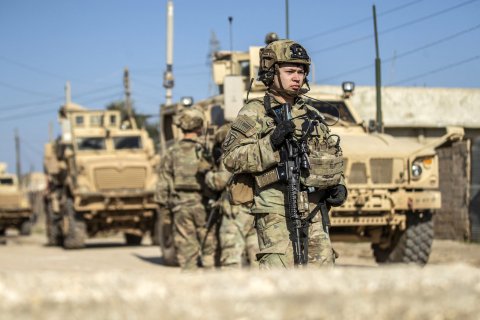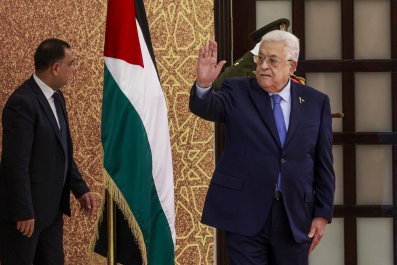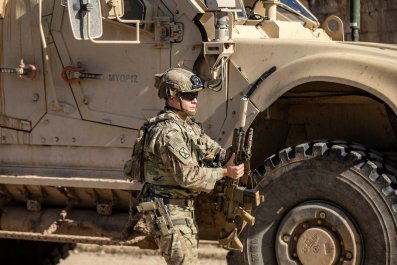Few people today recognize the name of Alois Brunner. As the right hand of Nazi official Adolph Eichman, he was one of the most notorious figures of the Holocaust, responsible for the deaths of an estimated 130,000 Jews in extermination camps.
For the family members whose lives he shattered, Alois Brunner is an indelible symbol of the Holocaust's horror. His deliberate actions aimed to erase an entire people and their heritage.
Certainly, we would assume, he was held to answer for his crimes. The answer might surprise you. After the defeat of Nazi Germany, instead of facing retribution, Brunner found asylum in Syria, living as Dr. Georg Fischer. Syrian Presidents Hafez al-Assad and then his son, Bashar al-Assad, provided protection to Brunner during his time in Syria. Brunner was working as an advisor for the Syrian government, contributing to their security services.
The Syrian government's decision to shield Brunner allowed a notorious war criminal to evade justice. It stands as a grim reminder of the consequences that can arise from a global community's failure to act or hold those responsible for harboring such a fugitive to account for their actions.
Reflecting on such moments in history, former U.K. Prime Minister Winston Churchill once asserted, "I never worry about action, but only about inaction." This sentiment rings especially true today as the United States grapples with its involvement in Syria. There, U.S. forces are currently playing a crucial role in the fight against the Islamic State, also known as ISIS, balancing the regional influences of Iran and Russia, and providing some measure of protection in a humanitarian crisis of staggering proportions.

The current situation in Syria remains an epic tragedy of poverty, conflict, and despair. Former U.S. General George C. Marshall once observed, "Wars are bred by poverty and oppression. Continued peace is possible only in a relatively free and prosperous world." Marshall's words serve to inform the broader strategy that is required in Syria. Initiatives that focus on economic development and political freedom are essential components of a sustainable strategy for peace in Syria and should be a linchpin of our policy there.
And yet, the U.S. faces significant obstacles in Syria, including the potential for mission creep and the complex dynamics of the conflict. A clear, achievable policy is essential—one that is defined by concrete objectives and an understanding of the region's historical, cultural, and political realities. Our own military strategy must be meticulously planned as a coalition effort, with defined objectives and a timeline to avoid an open-ended commitment.
If the U.S. were to withdraw all of its forces from Syria, we would see a power vacuum develop that would immediately be exploited by the Assad regime, Iran, and Russia, and would allow them to solidify their presence and influence in the region. It would be especially advantageous for Iran, as they seek to maintain a corridor of influence stretching from Tehran to the Mediterranean. Turkey could also potentially act more freely in northern Syria, and that would have severe implications for the Kurdish forces in the area that have been U.S. allies.
Our withdrawal could be seen as a betrayal of the Kurdish-led Syrian Democratic Forces, which have been a crucial partner in the fight against ISIS. This could not only lead to regional destabilization but also, in the wake of our abrupt exit from Afghanistan, would further erode U.S. credibility abroad. Our absence would likely compound the difficulties in delivering aid and safeguarding civilians in Syria's conflict-ridden areas, further worsening the already grave humanitarian conditions, where extensive conflict, economic hardship, and the impact of recent natural disasters have left many in desperate need.
Just as the Marshall Plan sought to restore balance and order through economic aid and the promotion of democratic institutions, our strategy in Syria should strive for equilibrium and relative stability.
The post-World War II principles of justice and accountability should continue to guide our policy on Syria to prevent it from becoming a haven for extremists. By doing so, we would help rectify the errors of the past, as we witnessed in Alois Brunner's escape under Syrian protection. While the withdrawal of U.S. forces might fulfill a short-term goal of reducing foreign military presence, it also risks destabilizing the region further.
Today, we have an opportunity to learn from our shared critical past and maintain our role as a leader in a region where peace and stability seem to always hang in the balance.
Colonel John Fenzel is a retired Army special forces officer, and the CEO of The World War II Foundation.
The views expressed in this article are the writer's own.












